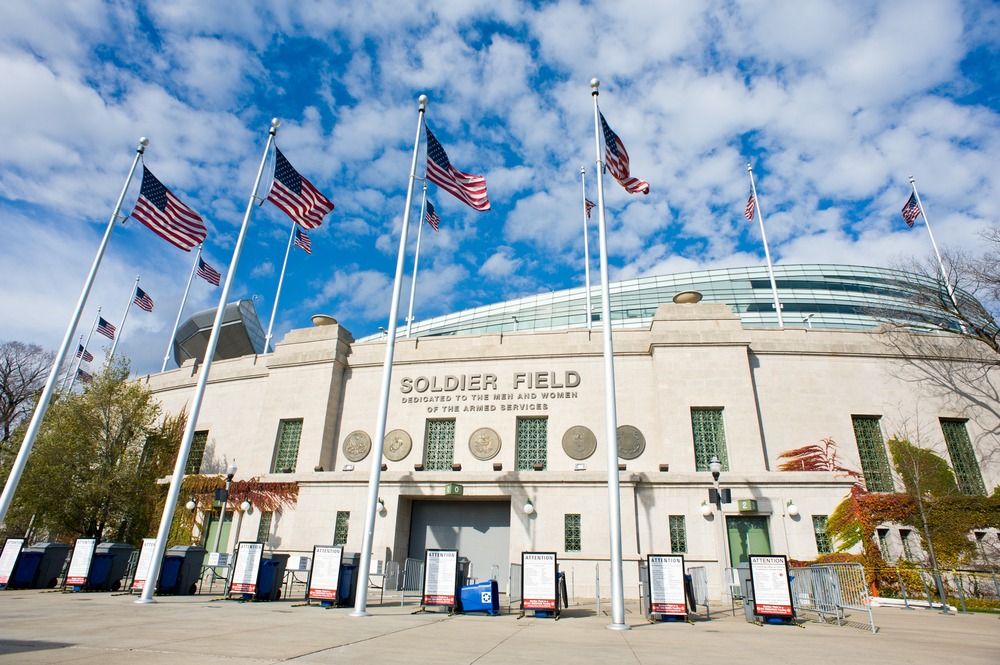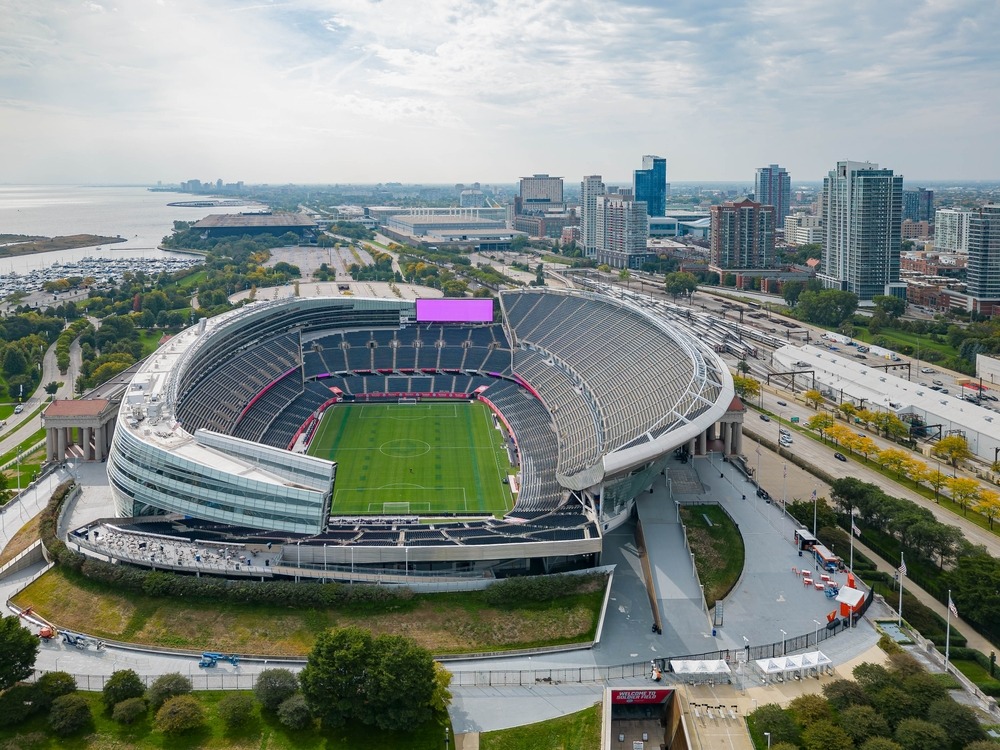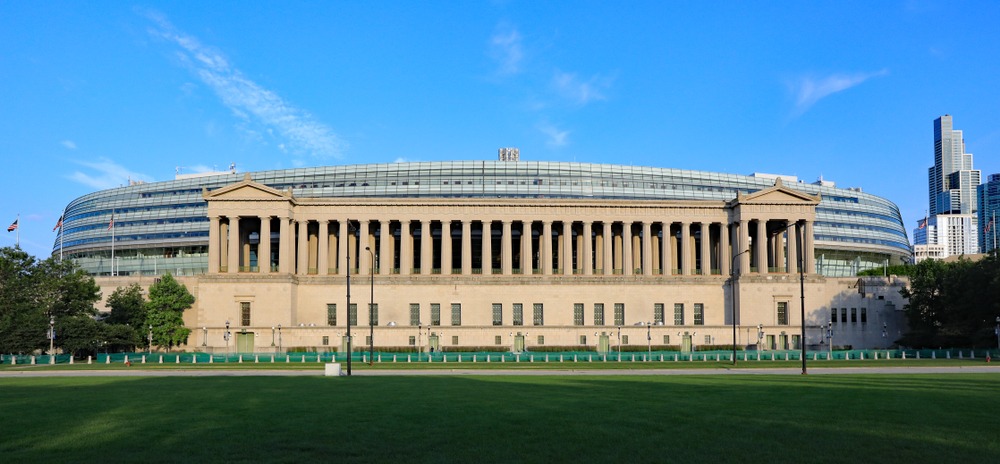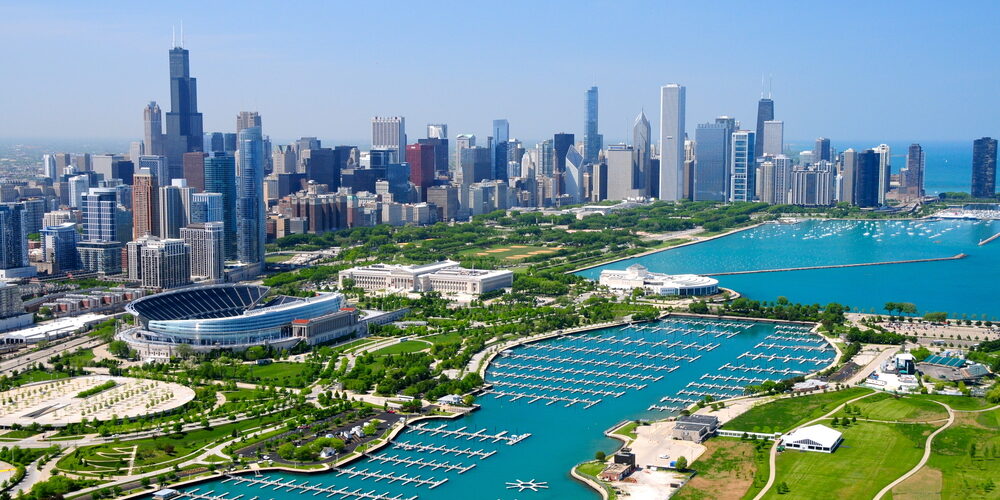Chicago’s Soldier Field: A Century of History, Significance, and Memorable Events
This year marks the 100th anniversary of Soldier Field, a stadium steeped in history and a tribute to the veterans and soldiers who served in World War I and beyond. While its origins date back slightly earlier under the name Grant Park Field, the renaming to Soldier Field in 1925 solidified its role as a landmark of both historical and cultural significance. Over the past century, Soldier Field has evolved to accommodate changing times while continuing to serve as a venue for some of the most iconic events in sports, music, and public discourse. Let us explore its storied past and honor the people and moments that have defined this Chicago treasure.
The Early Years: From Grant Park Field to Soldier Field
Construction on the stadium began in 1922 under the name Grant Park Municipal Stadium. The original vision was to create a multipurpose facility that could host sporting events, military ceremonies, and public gatherings. On November 11th, 1925, the stadium was officially renamed Soldier Field to honor the soldiers who fought in World War I, a decision reflecting a national sense of gratitude and remembrance. With Armistice Day becoming Veterans Day, the significance of this anniversary is even more impactful.
 The original structure, designed in the neoclassical style, featured a U-shaped colonnade of Doric columns and could accommodate 45,000 spectators. Over time, Soldier Field’s capacity and architecture would change dramatically, but its dedication to honoring service members has remained steadfast.
The original structure, designed in the neoclassical style, featured a U-shaped colonnade of Doric columns and could accommodate 45,000 spectators. Over time, Soldier Field’s capacity and architecture would change dramatically, but its dedication to honoring service members has remained steadfast.
A Venue for Sports Legends
From its earliest days, Soldier Field was a hub for sporting events. The stadium hosted its first football game on October 4, 1924, between Louisville Male High School and Austin High School. It quickly became a venue for college football, including the famed Army-Navy game in 1926, which drew a crowd of over 110,000 spectators—one of the largest gatherings in the stadium’s history.

In 1971, Soldier Field became the official home of the Chicago Bears, a partnership that brought NFL excitement to the iconic venue. Over the decades, it has hosted legendary players like Walter Payton, Mike Ditka, and Brian Urlacher. Soldier Field also played a pivotal role in global soccer history, serving as one of the venues for the 1994 FIFA World Cup and the 1999 FIFA Women’s World Cup. In recent years, it has hosted high-profile matches for international soccer clubs, cementing its status as a premier sports venue.
Memorable Performances and Public Events
Beyond sports, Soldier Field has been a stage for some of the most significant cultural and political events of the last century. In 1933, during the Century of Progress Exposition, it served as a focal point for Chicago’s world fair celebrations. During the Civil Rights Movement, Dr. Martin Luther King Jr. addressed a crowd here, using the platform to advocate for equality and justice.
The stadium has also been a prominent venue for musical performances. Over the years, it has hosted world-renowned artists and bands, including The Rolling Stones, U2, and Bruce Springsteen. One of its most memorable concerts came in 2015 when the Grateful Dead performed their Fare Thee Well shows, marking the band’s final performances with its core members.
Renovations and Controversies
Soldier Field has undergone significant transformations over the years. The most notable renovation occurred between 2002 and 2003 when the stadium was modernized to include updated seating, luxury suites, and improved amenities. The renovation reduced its capacity to 61,500 and resulted in the loss of its National Historic Landmark designation. While the redesign was controversial, drawing criticism for its stark contrast to the original architecture, it allowed the stadium to meet contemporary standards for both sports and entertainment.
Soldier Field Today
Today, Soldier Field continues to be a vibrant part of Chicago’s cultural landscape. As the oldest NFL stadium still in operation, it stands as a testament to Chicago’s rich history and enduring spirit. From hosting the Bears and international soccer matches to concerts and civic events, Soldier Field remains a dynamic venue that honors its century-long legacy.
Honoring 100 Years

As we commemorate the 100th anniversary of Soldier Field, we celebrate not only its history but also its ongoing significance. It has been a place where history is made, from unforgettable athletic feats to powerful public speeches and electrifying performances. Soldier Field is more than just a stadium; it is a living monument to the past and a beacon for the future.


































